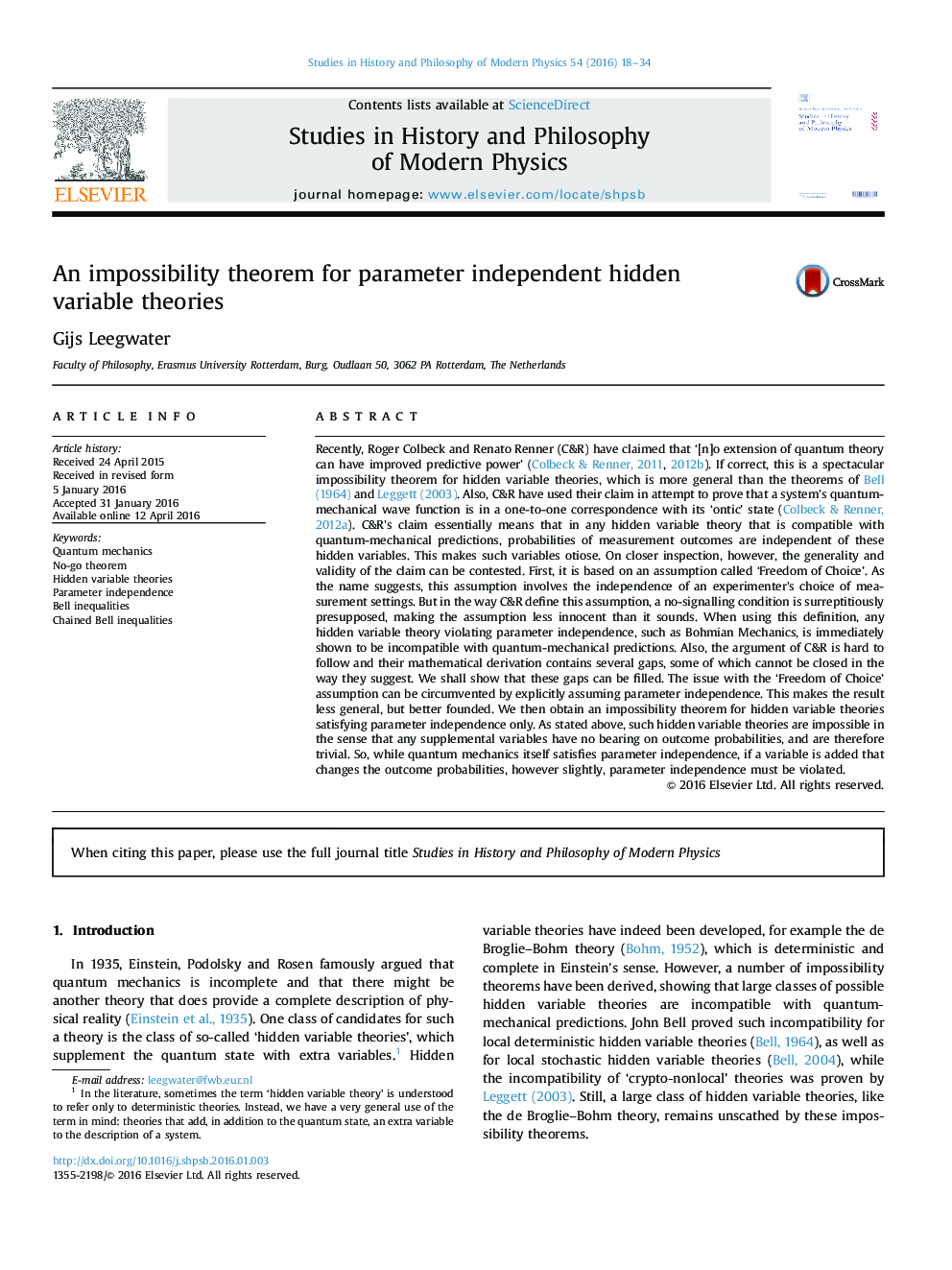| کد مقاله | کد نشریه | سال انتشار | مقاله انگلیسی | نسخه تمام متن |
|---|---|---|---|---|
| 1161096 | 1490422 | 2016 | 17 صفحه PDF | دانلود رایگان |
• A no-go theorem is presented for parameter independent hidden variable theories.
• Simpler proofs of existing results related to chained Bell inequalities are included.
• The work is based on a no-go theorem by Roger Colbeck and Renato Renner.
• Shortcomings of Colbeck and Renner׳s work are addressed.
• This work aims to be mathematically thorough and contains some new, necessary steps.
Recently, Roger Colbeck and Renato Renner (C&R) have claimed that ‘[n]o extension of quantum theory can have improved predictive power’ (Colbeck and Renner, 2011 and Colbeck and Renner, 2012b). If correct, this is a spectacular impossibility theorem for hidden variable theories, which is more general than the theorems of Bell (1964) and Leggett (2003). Also, C&R have used their claim in attempt to prove that a system׳s quantum-mechanical wave function is in a one-to-one correspondence with its ‘ontic’ state (Colbeck & Renner, 2012a). C&R׳s claim essentially means that in any hidden variable theory that is compatible with quantum-mechanical predictions, probabilities of measurement outcomes are independent of these hidden variables. This makes such variables otiose. On closer inspection, however, the generality and validity of the claim can be contested. First, it is based on an assumption called ‘Freedom of Choice’. As the name suggests, this assumption involves the independence of an experimenter׳s choice of measurement settings. But in the way C&R define this assumption, a no-signalling condition is surreptitiously presupposed, making the assumption less innocent than it sounds. When using this definition, any hidden variable theory violating parameter independence, such as Bohmian Mechanics, is immediately shown to be incompatible with quantum-mechanical predictions. Also, the argument of C&R is hard to follow and their mathematical derivation contains several gaps, some of which cannot be closed in the way they suggest. We shall show that these gaps can be filled. The issue with the ‘Freedom of Choice’ assumption can be circumvented by explicitly assuming parameter independence. This makes the result less general, but better founded. We then obtain an impossibility theorem for hidden variable theories satisfying parameter independence only. As stated above, such hidden variable theories are impossible in the sense that any supplemental variables have no bearing on outcome probabilities, and are therefore trivial. So, while quantum mechanics itself satisfies parameter independence, if a variable is added that changes the outcome probabilities, however slightly, parameter independence must be violated.
Journal: Studies in History and Philosophy of Science Part B: Studies in History and Philosophy of Modern Physics - Volume 54, May 2016, Pages 18–34
